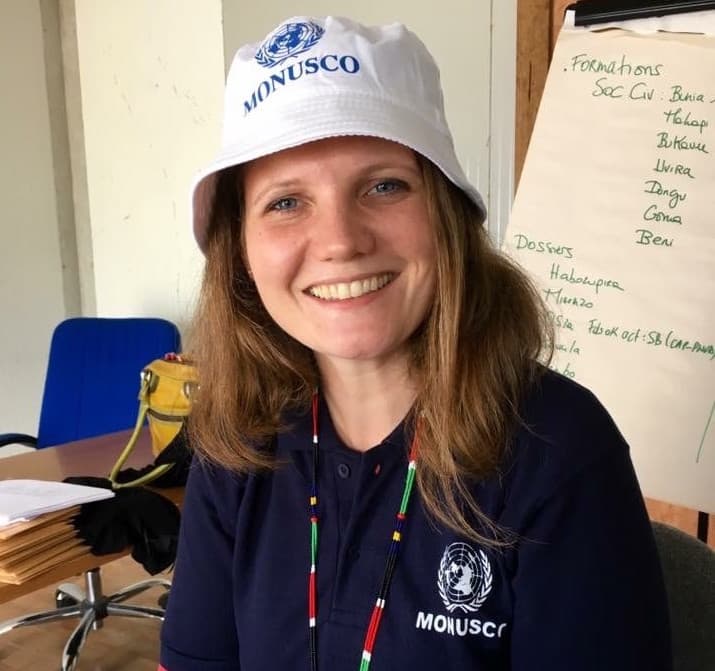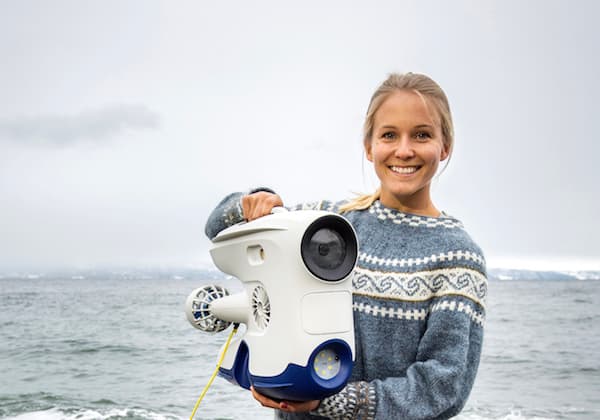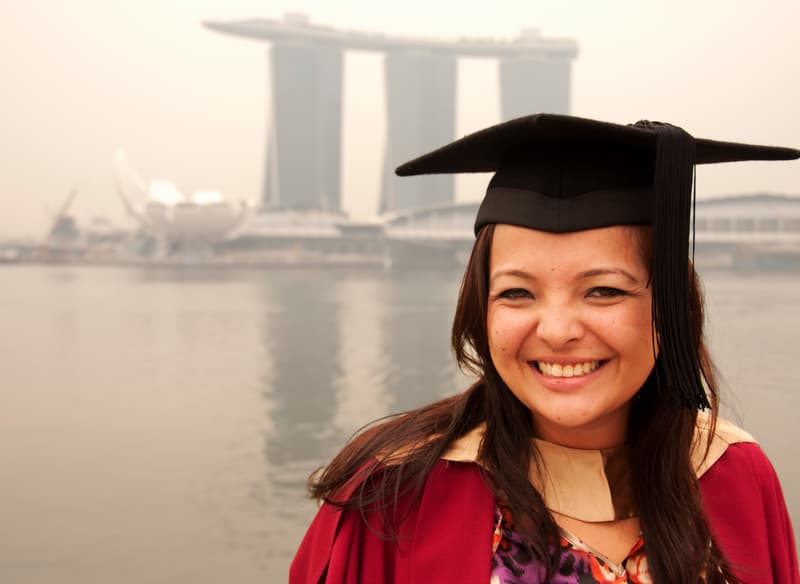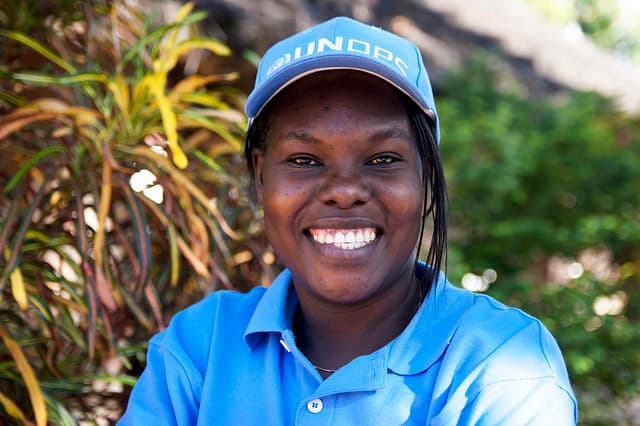International Consultant – Policy Mapping in the Care Economy
Mission | As
- Organization: UNWOMEN - United Nations Entity for Gender Equality and the Empowerment of Women
- Location: Mission | As
- Grade: Consultancy - International Consultant - Internationally recruited Contractors Agreement
-
Occupational Groups:
- Political Affairs
- Legal - Broad
- Economics
- Closing Date: 2023-11-24
Background
BACKGROUND
UN Women, grounded in the vision of equality enshrined in the Charter of the United Nations, works for the elimination of discrimination against women and girls; the empowerment of women; and the achievement of equality between women and men as partners and beneficiaries of development, human rights, humanitarian action and peace and security.
Domestic and care work is essential to people’s lives. It is a cornerstone of economic growth considering it is the work that is done before any other work can be done. Domestic and care work includes both paid and unpaid labor involving cleaning, cooking, washing and ironing, taking care of family members, including children, the elderly, those who are ill or have disabilities, as well as household pets, gardening, guarding the house and driving for the family. With increasing aging populations, demands on the care sector are expected to increase rapidly. Domestic and care work disproportionately falls on women, especially migrant workers who face severe decent work deficits, such as for low wages and heavier workload than agreed However, despite their essential contribution to support society and the economy, the domestic and care sector is undervalued and underregulated. This results in limited or zero protection for them. The COVID-19 pandemic has exposed the high dependence of many economies on domestic and care workers. The pandemic has brought a new sense of urgency to ensure provision of social protection, employment benefits and other support for workers in this economic sector. This also requires specific policies, programming and legislation and importantly coordinated efforts among stakeholders.
The supply and demand gap in the domestic and care economy is opening spaces for new players to step in and provide solutions. Work done by UN Women as part of the WeEmpowerAsia programme and the UN Women Care Accelerator programme to address the burden of unpaid care work has found that market-based solutions through care entrepreneurship are emerging to address the lack of accessible, affordable, and quality domestic and care services in the region. This requires partnerships with different entities to increase knowledge, capacity and resource to address the issues domestic and care workers face in order to transform the care economy and simultaneously realize progress towards gender equality and inclusive and sustainable development.
The UN Women’s Strategic Note for Asia and the Pacific (2023 -2025) has identified “transforming the Care Economy” as a key priority and multiple partnerships, programmes and future opportunities have been established to advance this work.
At the regional level in Asia Pacific, UN Women has recently launched a new regional care programme – ‘Gender-Inclusive Care Entrepreneurship Ecosystem Programme (GICEEP)’, a joint initiative of Canada’s International Development Research Centre, Visa Foundation, UN Women Asia and the Pacific, BopInc, and SAFEEM. The program aims to promote women's economic empowerment by fostering a more inclusive care entrepreneurship ecosystem through business training, mentorship, access to networks and finance, and inclusive and gender-responsive business-building practices. The GICEEP's three pillars focus on developing Base of Pyramid solutions (in India and Bangladesh), implementing a gender-responsive care accelerator (accepting regional SMEs but priority given to those from India and Indonesia), and facilitating knowledge exchange to scale up entrepreneurship-based care solutions.
Building on the networks established through the IDRC funded programme: ‘Accelerating Care Entrepreneurship as a pathway for a more gender-inclusive economy in Asia’ UN Women co-organized the first ever Asia-Pacific Care Forum in Malaysia. This was an important opportunity to raise awareness and engage different type of stakeholders, including the new cohort of care entrepreneurs (from pillar 2), investors and government representatives, who will play an important role to (1) mobilize more investors for pillar 2 and (2) to establish collaboration with government representatives to support the further implementation of Pillars 1 & 2 and to engage in deeper policy conversations around care entrepreneurship. For a comprehensive outcome please see here: .
In order to disseminate the findings from GICEEP which will also synthesize insights from the pilots of base of pyramid models in India and Bangladesh, UN Women will hold a South Asia Forum planned for 2024 as a multi-stakeholder dialogue between governments, care enterprises and other players in the Base of Pyramid Care Ecosystem to discuss opportunities and challenges for advancing accessible, affordable and quality care for low income households. The session will focus on distilling lessons learned from GICEEP and potential for investing in specific BoP models to drive an inclusive care economy and reduce the unpaid care burden borne by women and girls The discussion will also focus on policy recommendations for governments in South Asia and will seek to identify entry points for (1) improving investments in care enterprises that cater to the base of the pyramid and (2) cast a wider net to identify other policy options for advancing an inclusive care economy in the region.
UN-Women is therefore seeking an International Consultant – Policy Mapping to work under the WEE - Migration team reporting to the WEE and Migration Programme Lead to providing policy and trend analysis and briefings to advance UN Women’s agenda in creating equitable and just policies on the areas relevant to care economy, social protection, decent work, and labour migration with a focus on South Asia. This is to enhance UN Women in Asia and the Pacific to build strong and effective coalitions with stakeholders, namely government, development partners, the private and civil society organizations particularly in South Asia, for transformative change in the care economy. The International Consultant will work in close collaboration with the ROAP programme and operations team, UN Women country offices (COs) and programme presences, government officials, multi and bi-lateral donors, civil society and the private sector.
CONTRACT PERIOD AND WORK LOCATION
The period of this consultancy is for 6 months; the consultant is home based with mission travel as required.
Duties and Responsibilities
DUTIES AND RESPONSIBILITIES
Producing policy intelligence and policy recommendations for areas relevant to inclusive economic development focusing on the care economy and the intersection with labour migration
- Conduct a rapid sub-regional mapping and assessment of care related policies, including childcare, elderly and disabled care programmes and opportunities for UN Women’s engagement in Asia and the Pacific (in selected countries in South Asia) with min. 4 countries deep dives including: mapping existing commitments, programmes at subregional level, sub-regional bodies, mechanisms and other actors involved in decision making and current regional priorities, gaps and opportunities for policy change. The mapping should also include an assessment of the extent to which these policies and programmes are evidence-informed, and if so, what gender data was leveraged and how
- Analyze and monitor relevant national legislation, policies, measures, projects and studies relevant to the care economy (including but not limited to labor migration) (in South Asia as well as looking into best practices and approaches from other advanced regions, especially countries that have committed to the Global Alliance for Care). This includes detailing existing laws, policies and programmes at national level (including international commitments)?, relevant institutions, governmental and quasi-governmental and other actors involved in decision making? and current national priorities, policy gaps and opportunities. This also includes detailing best practices, of which one should identify and illustrate a good example of evidence-informed decision making in the development of care-related policies.
- Conduct a literature review of existing best practices at international and national levels on policies and practices for advancing an inclusive care economy particularly in identifying examples of implementation of policies, especially entrepreneurship driven delivery models for reducing the unpaid care burden. Associated data needs should also be identified.
- Draft a report with the findings and recommendations for policy change on the care economy in the select countries with its linkages with labor migration in relation to migrant workers employed in domestic and care work. This includes, identifying focus areas and actors for advancing inclusive care policies at national and sub regional levels in South Asia, key entry points and recommended areas for UN Women to advance, including UN Women’s role in advancing care entrepreneurship
- Develop a presentation and present research to different stakeholders to generate new and valuable inputs for improving policies and programming.
EXPECTED DELIVERABLES
The consultant will work under the direct supervision of Regional WEE Program Lead, UN Women ROAP, to achieve the following deliverables:
No. |
Deliverables |
Target date |
|
1
|
1.1 Workplan Approach for following Deliverables: Outline of the Care Ecosystem Mapping and Analysis in South Asia |
10 December 2023
|
|
1.2 Draft 1: Care Ecosystem Mapping and Analysis including:
Section (1) Conducting a rapid sub-regional mapping and assessment of mapping existing commitments, programmes at subregional level, sub-regional bodies, mechanisms and other actors involved in decision making and current regional priorities, gaps and opportunities for policy change, including gender data needs.
Section (2) Analyzing relevant national legislation, policies, measures, projects and studies as outlined in the previous section in the 4 select countries on the different types of care (including childcare, elderly, disability care)
Section (3), relevant institutions, governmental and quasi-governmental and other actors involved in decision making? and current national priorities, policy gaps and opportunities in the 4 countries
|
31 December 2023
|
|
|
2
|
2.1 Draft 2: Containing revised Draft 1 incorporating feedback plus
Section (4) a literature review of existing best practices at international and national levels on policies and practices for advancing an inclusive care economy particularly in identifying examples of implementation of policies, especially entrepreneurship driven delivery models for reducing the unpaid care burden
|
15 February 2024 |
|
2.2 Draft 2: Containing revised Draft 1 incorporating feedback plus
Section (5): identifying focus areas and actors for advancing inclusive care policies at national and sub regional levels in South Asia, key entry points and recommended areas for UN Women to advance, including a focus on UN Women’s role in advancing care entrepreneurship |
29 February 2024
|
|
3 |
3.1 Draft 3: Report Care Ecosystem Analysis: Revised draft incorporating UN Women feedback together with the final findings and recommendations.
|
20 March 2024 |
|
4
|
4.1 Deliver an online presentation on findings in Q2 2024 |
15 April 2024 |
4.2 Submission of the draft Final Report (Internal feedback) |
30 April 2024 |
|
5 |
5.1 Deliver an online external presentation on findings in Q2 2024 |
15 May 2024 |
5.2 Submission of final report including all revisions and feedback |
30 May 2024
|
Competencies
COMPETENCIES
Core Values
- Respect for Diversity;
- Integrity;
- Professionalism.
Core Competencies
- Awareness and Sensitivity Regarding Gender Issues;
- Accountability;
- Creative Problem Solving;
- Effective Communication;
- Inclusive Collaboration;
- Stakeholder Engagement;
- Leading by Example.
Functional Competencies
- Excellent research and analytical skills:
- Excellent legal and public policy research abilities
- Strong knowledge of the government, institutions and politics of South Asia
- Strong ability to conduct policy research targeted to government officials
- Strong overall knowledge of on women’s economic empowerment
- Good knowledge on care economy, social protection policies and programming
- Good knowledge on gender-responsive migration
- Ability to analyse trends and synthesize data to actionable recommendations to inform management and strategic decision-making
Please visit this link for more information on UN Women’s Core Values and Competencies:
Required Skills and Experience
REQUIREMENTS AND QUALIFICATIONS
Education and certification:
- Master’s degree or equivalent in law, public policy and governance, gender/women's studies, international development, or a related field is required;
- A first-level university degree in combination with two additional years of qualifying experience may be accepted in lieu of the advanced university degree;
Experience:
- Must have worked minimum 2 years in South Asia in the space of public policy research or women’s economic empowerment
- Experience in conducting research and analysis of social, economic, and public policy trends is a must
- Experience working with government or policy research in South Asian countries is required
- Experience writing briefs targeted to policy makers is a strong asset
- Experience and understanding of legal research is a strong asset
Language Requirements:
- Excellent command of written in English
- Fluency in another South Asian spoken language is a strong asset
SUBMISSION OF APPLICATION
Interest candidates are encouraged to submit electronic application to UNDP website: or to with in copy, no later than 24 November 2024 COB.
- Letter of Interest containing the statement on candidate’s experience in line with the scope of work and requirements.
- including past experience in similar assignments; can be downloaded at .
- Writing sample concept note, policy brief, publication in the area of policy/legislative research relevant to the assignment (1 piece in English).
- Financial proposal: the financial proposal shall specify a lump sum total amount breaking down the cost per deliverable. Please see the financial proposal template below:
No. |
Deliverables |
Amount (USD) |
|
1
|
1.1 Workplan Approach
1.2 Draft 1: Care Ecosystem Mapping and Analysis
|
|
|
2
|
2.1 Draft 2: Containing revised Draft 1 incorporating feedback plus Section (4)
2.2 Draft 2: Containing revised Draft 1 incorporating feedback plus Section (5) |
|
3 |
3.1 Draft 3: Report Care Ecosystem Analysis: Revised draft incorporating UN Women feedback together with the final findings and recommendations. |
|
|
4
|
4.1 Deliver an online presentation on findings in Q2 2024 4.2 Submission of the draft Final Report (Internal feedback) |
|
5 |
5.1 Deliver an online external presentation on findings in Q2 2024 5.2 Submission of final report including all revisions and feedback |
|
|
Others (please provide details as applicable) |
|
|
Total Financial Proposal (USD) |
|
EVALUATION
Applications will be evaluated based on the cumulative analysis.
- Technical Qualification (100 points) weight; [70%]
- Financial Proposal (100 points) weight; [30%]
A two-stage procedure is utilised in evaluating the applications, with evaluation of the technical application being completed prior to any price proposal being compared. Only the price proposal of the candidates who passed the minimum technical score of 70% of the obtainable score of 100 points in the technical qualification evaluation will be evaluated.
Technical qualification evaluation criteria:
The total number of points allocated for the technical qualification component is 100. The technical qualification of the individual is evaluated based on following technical qualification evaluation criteria:
Technical Evaluation Criteria |
Obtainable Score |
|
Education and certification:
|
20 % |
|
Experience:
|
60 % |
|
Language Requirements:
|
20 % |
Total Obtainable Score |
100 % |
Only the candidates who have attained a minimum of 70% of total points will be considered as technically qualified candidates who may be contacted for validation interview.
At UN Women, we are committed to creating a diverse and inclusive environment of mutual respect. UN Women recruits, employs, trains, compensates, and promotes regardless of race, religion, color, sex, gender identity, sexual orientation, age, ability, national origin, or any other basis covered by appropriate law. All employment is decided on the basis of qualifications, competence, integrity and organizational need.
If you need any reasonable accommodation to support your participation in the recruitment and selection process, please include this information in your application.
UN Women has a zero-tolerance policy on conduct that is incompatible with the aims and objectives of the United Nations and UN Women, including sexual exploitation and abuse, sexual harassment, abuse of authority and discrimination. All selected candidates will be expected to adhere to UN Women’s policies and procedures and the standards of conduct expected of UN Women personnel and will therefore undergo rigorous reference and background checks. (Background checks will include the verification of academic credential(s) and employment history. Selected candidates may be required to provide additional information to conduct a background check.)








